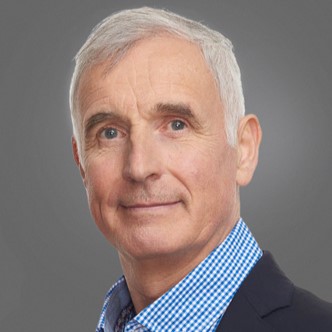On the verge of raising its Series A in late 2021, Myricx Bio faced a tough choice.
The toxicity profile for its IV and oral small molecules looked “like a key risk,” according to Myricx CEO Robin Carr, and the target was novel, creating a challenging path into the clinic for solid tumors and blood cancers. So the London-area startup decided to see whether its payload could be applied to antibody-drug conjugates, which were on the cusp of a renaissance in oncology medicine R&D at the time.
“The first ADC we made — just straight out of the box — looked spectacular in terms of efficacy and in terms of therapeutic index in the mice,” Carr said.
With early data supporting its pivot to ADCs, Myricx returned to the investors with whom it previously held discussions, and the response was uniformly positive. They said, “‘We always thought that would be a good idea. We’re really glad you’ve done it,'” according to Carr.
The nimble UK startup, founded in 2019, has now disclosed a $114 million Series A to see if it can create a new type of payload for ADCs that might be used after patients have relapsed on other drugs in the class or other settings. It has licensed antibodies from two companies and is entering similar target spaces as other ADC drugmakers like Daiichi Sankyo, Merck and GSK.
Novo Holdings and Abingworth co-led the financing. Also contributing to the Series A is Eli Lilly, the world’s largest pharma by market cap and an interested player in the burgeoning field of ADCs. The Indianapolis-based pharma bought two European ADC startups last year, but was relatively quiet about the deals and the size of the acquisitions. Myricx’s founding investors Brandon Capital and Sofinnova Partners also contributed to the Series A, as did British Patient Capital and Cancer Research Horizons.
Other European ADC biotechs that announced major financing rounds this year include Tubulis and Pheon Therapeutics. Several US-based companies have also reeled in nine-figure rounds.
A new payload
With the raise, Myricx hopes to prove that its payload can kick-start a new subset of the ADC field, going up against the mainstay payloads of tubulin inhibitors and topoisomerase I inhibitors.
The startup is developing n-myristoyltransferase (NMT) inhibitors, based on research out of Imperial College London and the Francis Crick Institute. The enzyme contributes a particular lipid modification to multiple protein targets integral to the endurance of cancer cells. Dropping in an NMT inhibitor should stop the cell from making particular proteins that keep the cylinders going on five critical pathways used by a lot of cancers, Carr said.
“If you inhibit NMT, the cells do not have an escape mechanism and they can’t slowly get away with it via other enzymes,” Carr said. “There’s no other enzyme that can make that process. And it’s irreversible. It’s a one-off event.”
With ADCs moving into earlier lines of treatment, and with more approvals likely on the way, patients could end up relapsing on those drugs relatively early in their treatment journey, Carr said.
“They really want to know where to go next. What treatment can they get next? And so do the clinicians,” Carr said. “But at the moment, there’s such a limited range of payloads, and it’s typically the payload that the cancers develop resistance to.”
The biotech expects to enter the clinic around mid-2026 with its lead program, and a second ADC is about six months behind that, Carr said. He declined to disclose which asset is in the batter’s box.
Myricx’s website lists two pipeline projects: one targeted at B7-H3 and the other at HER2. It also has produced preclinical data on TROP2.
The HER2 field is well-known, especially in breast cancer medicine for the work that Daiichi Sankyo and AstraZeneca have done with their ADC Enhertu. In B7-H3, multiple pharmas are doing work, including Merck collaborating with Daiichi and GSK teaming up with Hansoh. Meanwhile, MacroGenics’ ADC recently ran into safety concerns in a prostate cancer trial.
Myricx may entertain a pharma partnership later in development.
 Chris Martin
Chris Martin“If we are right and our preclinical data translates to the clinic, we’ll be able to show impressive efficacy differentiation through Phase 1b, and clearly there have been a number of remarkably high-value acquisitions based on early clinical data. But the market is changing and things are evolving,” Carr said. “We may well need and want to do the Phase 2, but I think we would look to partner to take it further than that.”
The biotech recently brought on several ADC veterans. Myricx named ADC Therapeutics co-founder and former CEO Chris Martin as its chair in November, and it also hired that biotech’s head of preclinical pharmacology, Francesca Zammarchi, as its chief scientific officer in October.